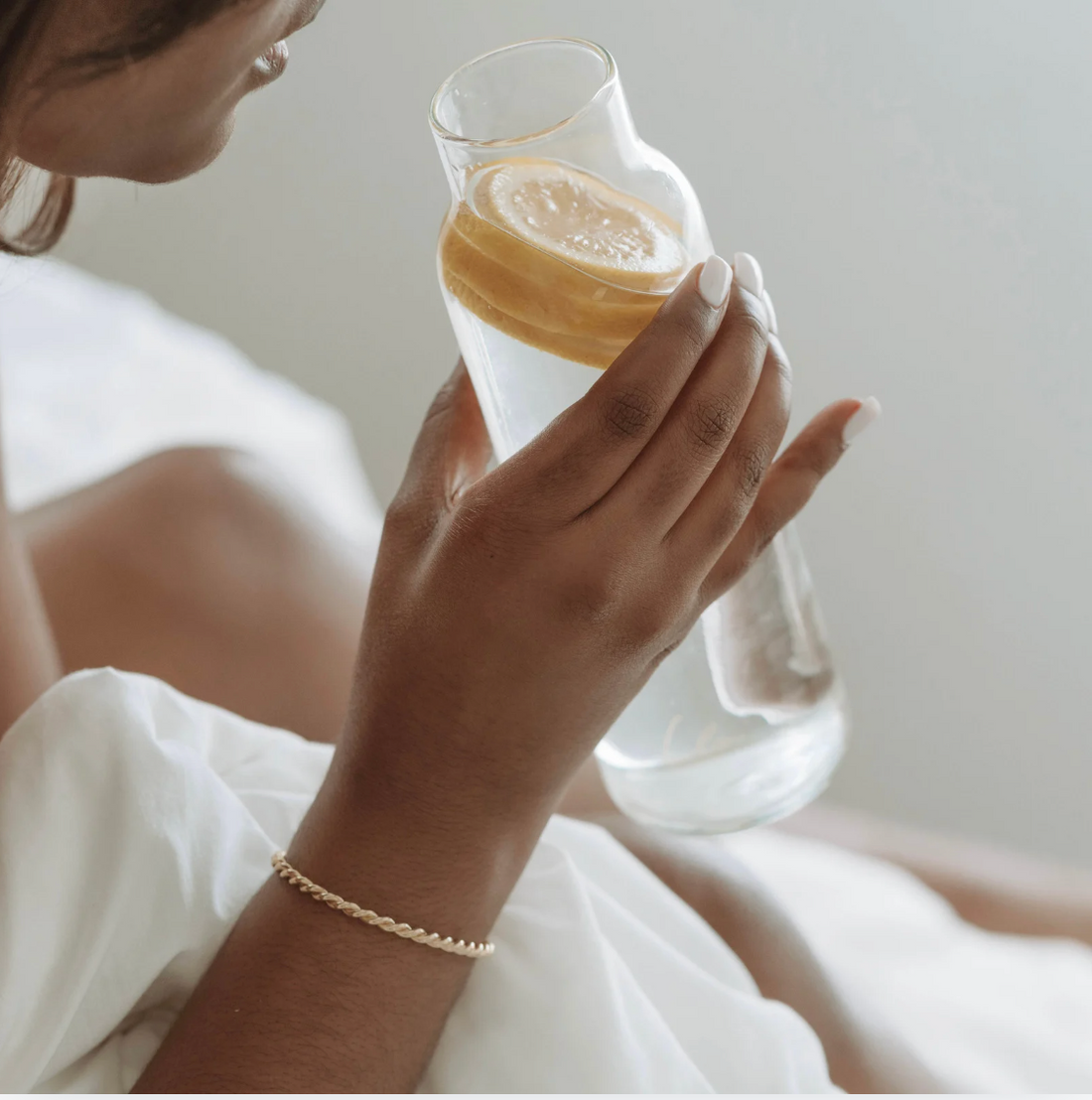How Much Water Do You Need to Stay Healthy & Hydrated?
When we talk about hydration, it’s not just about downing eight glasses a day. Hydration is complex and personal, dependent on factors like your activity level, diet, climate, and even your skin’s needs. As a pharmacist and founder of PharmMade, I want to dive into how much water you really need, what counts toward that daily goal, and how hydration impacts your skin.
How Much Water Do You Really Need?
The "8x8" rule – eight 8-ounce glasses a day – is popular but not a strict guideline for everyone. Scientific research, including studies by the National Academies of Sciences, Engineering, and Medicine, shows that men generally need about 3.7 liters (125 ounces) of total water per day, while women require about 2.7 liters (91 ounces). Total water includes all fluids consumed, so let’s break down what counts.
What Counts as Water?
- Plain Water: Still or sparkling, plain water is the purest way to hydrate.
- Tea & Coffee: Contrary to popular belief, moderate consumption of caffeinated drinks like tea and coffee can still contribute to hydration. While caffeine has a mild diuretic effect, the body does absorb most of the water content.
- Hydrating Foods: Roughly 20% of daily hydration comes from foods. Fruits like watermelon and vegetables such as cucumbers are packed with water and electrolytes that help maintain hydration. Soups, broths, and smoothies also add to your daily intake.
- Other Beverages: Milk, juices, and other beverages also contribute to your hydration. However, be mindful of added sugars and calories.
Not All Water Is Created Equal
-
Spring Water: Naturally sourced from underground aquifers, spring water often contains trace minerals like magnesium, calcium, and potassium. These minerals not only improve the taste but also support electrolyte balance, which can aid hydration at a cellular level, particularly for those with active lifestyles.
-
Purified Water: This water undergoes filtration processes like reverse osmosis or distillation, which remove impurities, including chemicals, bacteria, and heavy metals. Although it lacks minerals found in spring water, it’s extremely clean and can be beneficial if you’re in an area with poor water quality or want a neutral-tasting option.
-
Mineral Water: Mineral water is rich in naturally occurring minerals like calcium, magnesium, and potassium, sometimes in higher amounts than spring water. These minerals not only provide a refreshing taste but also serve essential functions in the body. Mineral-rich waters can be especially hydrating, as the added electrolytes help improve fluid balance in your body and replenish lost minerals.
-
Electrolyte-Enhanced Water: Often marketed as “sports water,” this type has added electrolytes, including sodium, potassium, and chloride, which help retain water and support hydration in those who lose fluids through sweating. While beneficial for athletes or during hot weather, regular daily drinking doesn’t typically require these added electrolytes.
-
Alkaline Water: Known for its higher pH, alkaline water can help balance body acidity levels for some people, though scientific support on its benefits is limited. Some believe that its additional minerals aid hydration, but more research is needed to confirm if this differs significantly from regular drinking water.
Each type has unique properties that can be beneficial, but the best choice often comes down to personal preference, lifestyle, and specific health needs. If you’re looking to maximize hydration, mineral and spring waters with naturally occurring electrolytes are excellent options. However, purified and distilled waters are equally hydrating and ideal for anyone prioritizing clean, pure water.
Water and Skin Health

Skin hydration isn’t as straightforward as you might think. While drinking water is essential for overall bodily function, its impact on the skin works more indirectly. Here’s how:
- Internal Hydration for Skin Elasticity: The dermal layer, which lies below the surface layer (epidermis), receives nutrients and water from your bloodstream. Hydrated skin is more elastic, meaning it’s better equipped to fight signs of aging, like wrinkles.
- Barrier Protection and Acne Management: Adequate water intake supports your skin’s natural barrier function. A compromised skin barrier can lead to transepidermal water loss (TEWL), making the skin more prone to irritants, pollutants, and bacteria that cause acne or dryness.
- Reducing Puffiness and Inflammation: Staying hydrated helps with lymphatic drainage, reducing puffiness and inflammation. Proper hydration can improve skin tone and help diminish the appearance of dark circles and fine lines.
Can Drinking Water Replace Skincare?
It’s a myth that drinking water alone can give you glowing skin. Topical hydration – such as using products with hyaluronic acid, glycerin, and ceramides – works in tandem with internal hydration to retain moisture at the skin’s surface. PharmMade is designed to put your overall skin health first, and one of the ways it does that is to enhance your skin's hydration barrier while your internal hydration works below the surface. You can find hyaluronic acid in our Dew Drop Serum, this molecule, found naturally in our skin, binds and holds water at the skin surface, enhancing hydration and limiting water loss. You can find ceramides in our Glow Daily Moisturizer, ceramides restore our protective barrier, improving our lipid structure to maintain the proper flow of water and nutrients through the skin, as well as provide a protective barrier to hold water inside our skin, keeping it hydrated.
Tips for Better Hydration and Glowing Skin
- Track Your Intake: Aim for a balance between plain water, hydrating foods, and healthy beverages.
- Adjust for Your Lifestyle: Physical activity, heat, and even stress can increase hydration needs.
- Enhance with Electrolytes: For those especially active, electrolyte-enhanced drinks help replenish what’s lost through sweat.
- Optimize Your Skincare: Key ingredients that help maintain the water balance within our skin, like hyaluronic acid, ceramides, and glycerin, are pivotal for healthy glowing skin.
Staying well-hydrated is vital for your health and complexion, but it's about more than simply hitting a quota. By balancing water intake with topical skincare, you can support your skin at every layer for the most radiant results.
